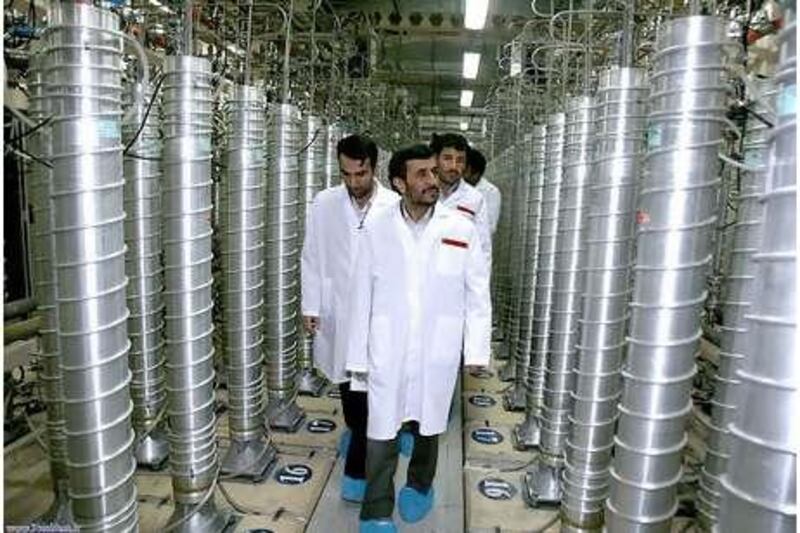The UN Security Council has unanimously adopted a resolution again urging Iran to suspend its sensitive nuclear fuel work but offering no new sanctions and merely reaffirming existing ones. Resolution 1835 calls on Iran "to fully comply and without delay with its obligations (under relevant UN resolutions) and to meet the requirement of the IAEA (International Atomic Energy Agency) board of governors."
The resolution also reaffirmed the council's "commitment to an early negotiated solution to the Iranian nuclear issue," and welcomes the "dual-track approach" by Britain, China, France, Germany, Russia and the United States, the six powers trying to clip Iran's nuclear ambitions. The US ambassador to the UN Zalmay Khalilzad immediately welcomed the adoption of the resolution by all 15 council members.
"It shows that the world community is united on this issue, that Iran must co-operate," he said, stressing that the nuclear standoff with Tehran should be resolved "through diplomacy." But Iran's UN mission said in a statement: "It is unfortunate... that yet again we are witnessing that the Security Council has been unwarrantedly and unnecessarily called to act in a hastily manner on an issue that by no stretch of logic, law or justification falls within the Council's purview, and poses no threat to international peace and security,"
The Security Council has already slapped three rounds of sanctions on Iran for refusing to suspend uranium enrichment, a process which can be used to make the fissile material for a nuclear bomb. Russian Ambassador Vitaly Churkin, who on Friday ruled out any new sanctions for now, said after the vote: "the added value of this resolution is in channelling the thinking of everybody in the direction of political rather than military enterprise."
Western diplomats had expressed fears that a lack of action by the Security Council might have led Israel to carry out its threat to resort to military action to ensure that its enemy, Iran, does not acquire nuclear weapons. British Foreign Secretary David Miliband said ahead of the vote that the resolution sends "a very particular signal that our resolve has not weakened." He added that the draft also sends the message that "the two-track policy of engagement but also sanctions in the face of Iranian defiance of the UN and the IAEA remains very much in play."
The United States and its European allies had pushed for new, tougher sanctions against Tehran but ran into resistance from Russia and China. The West and Israel accused Iran of using its nuclear program as a cover to build nuclear arms. But Tehran insists its programme is strictly peaceful and solely aimed at generating electricity. The six powers trying to clip Iran's nuclear ambitions have offered Tehran economic and energy incentives in exchange for a suspension of its uranium enrichment program.
The issue gained new urgency after the IAEA reported last week that Tehran continued to defy international pressure to co-operate with its investigation. *AFP





